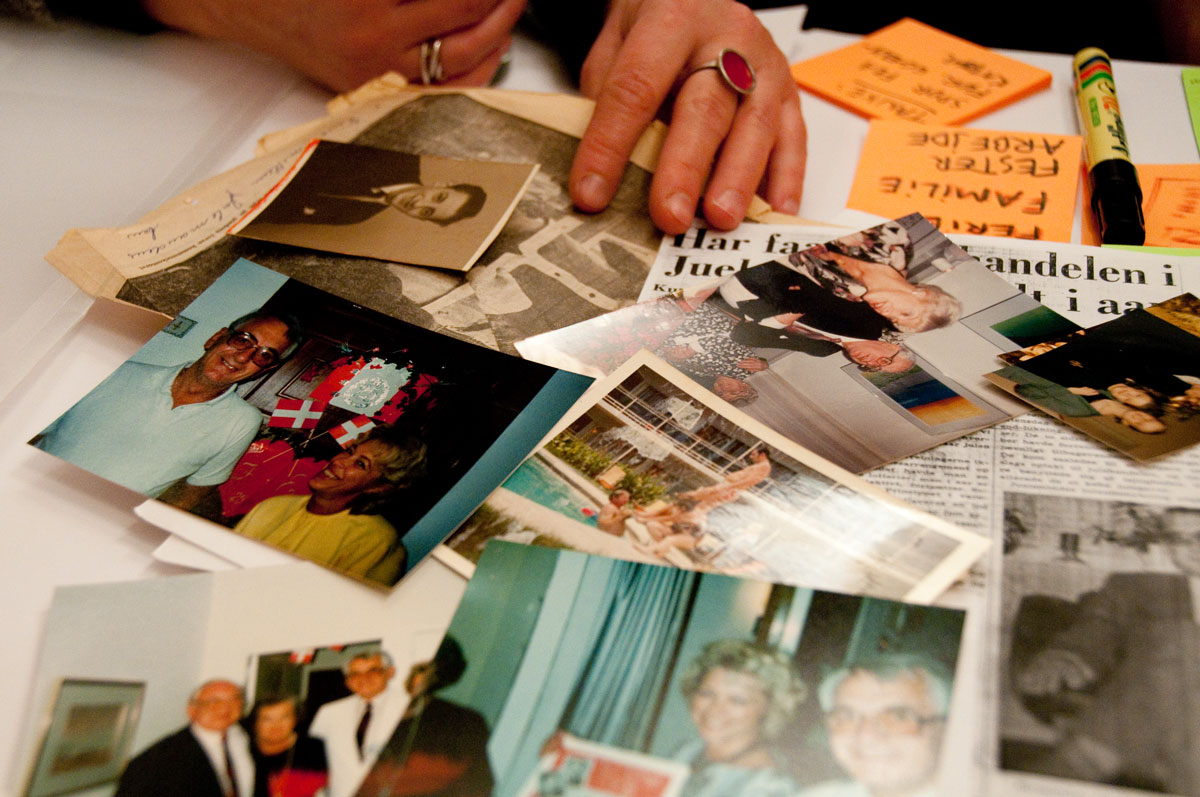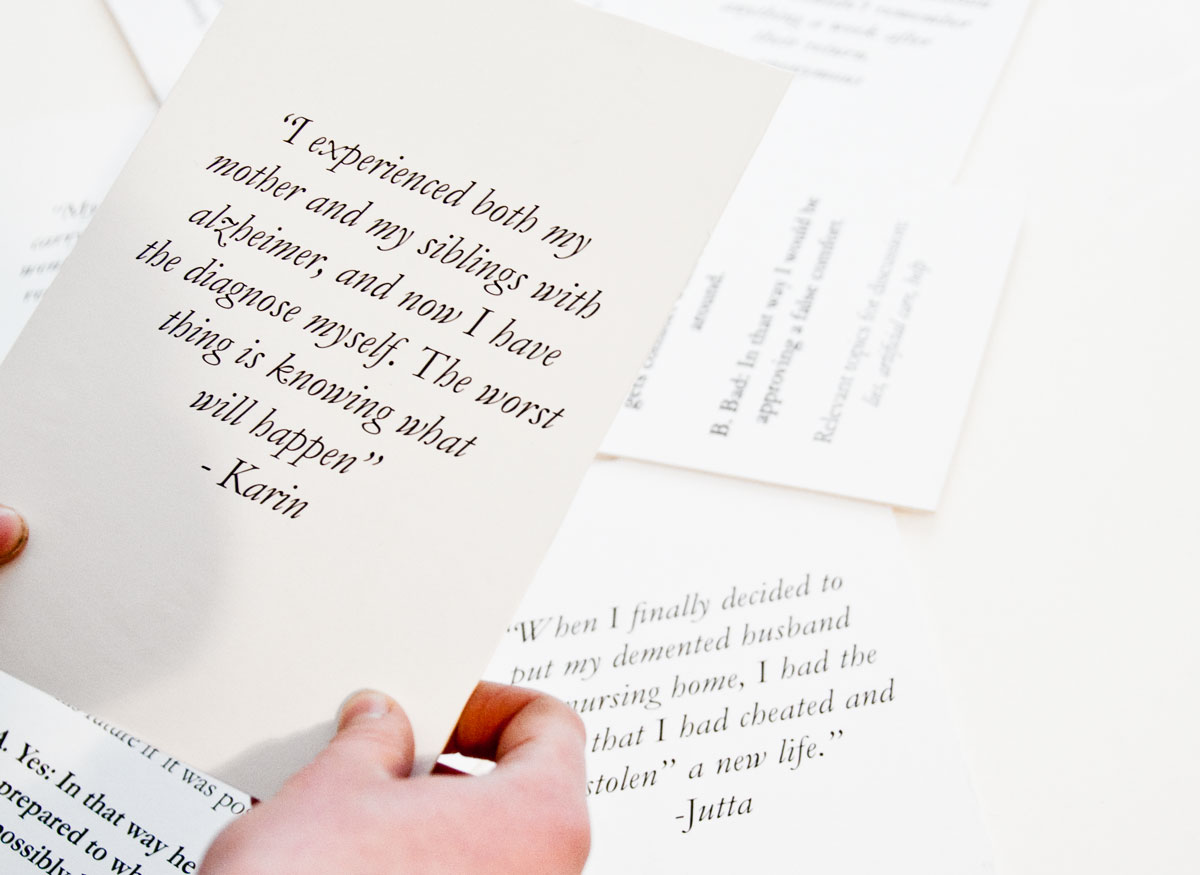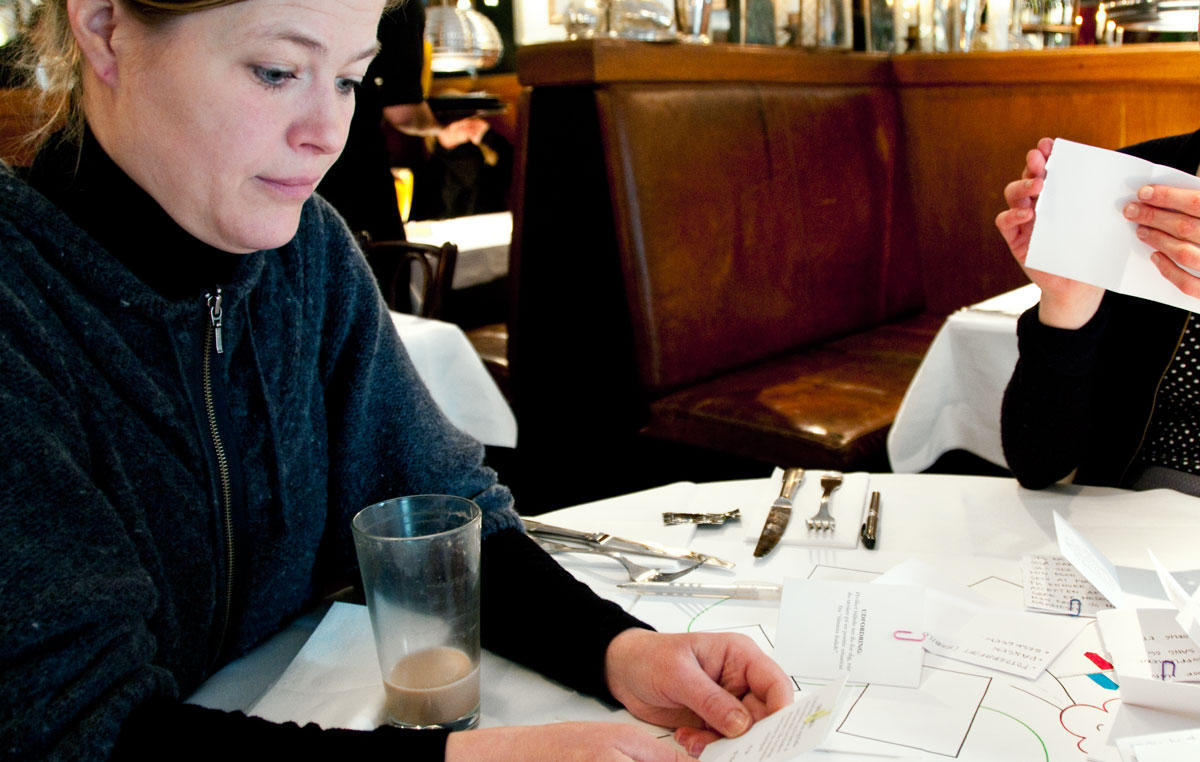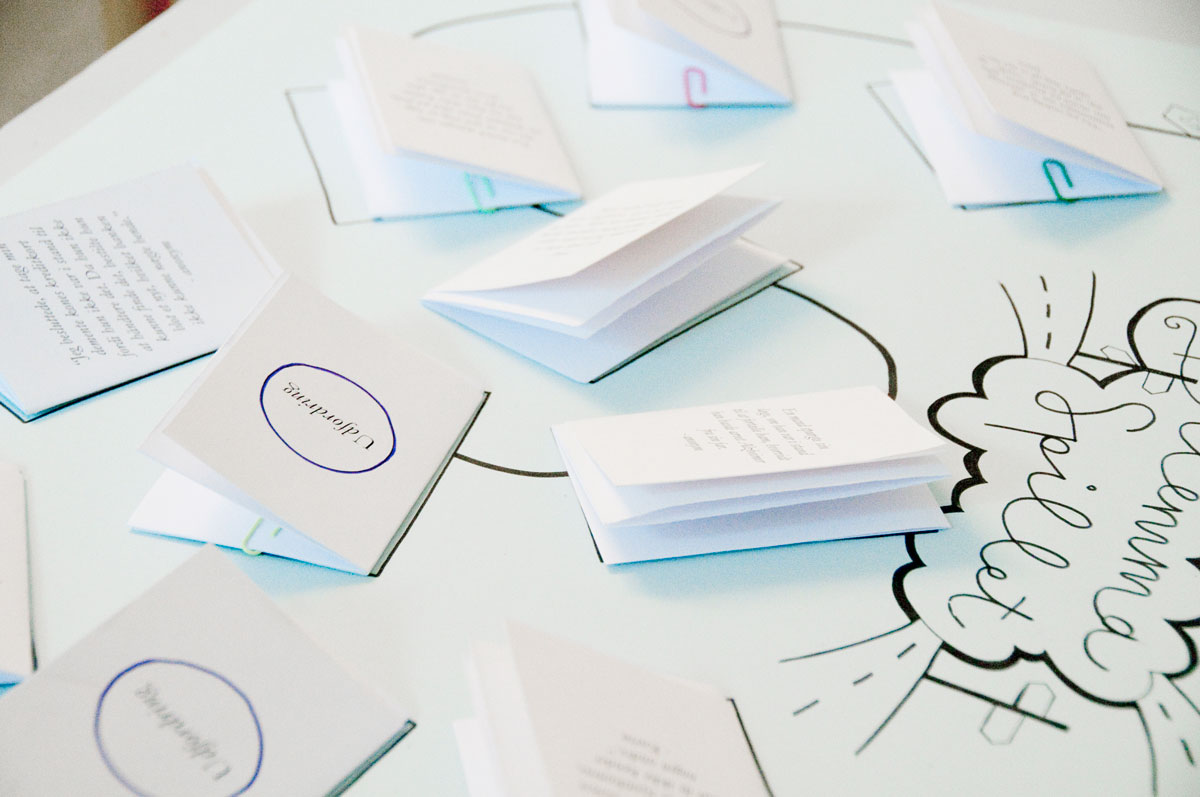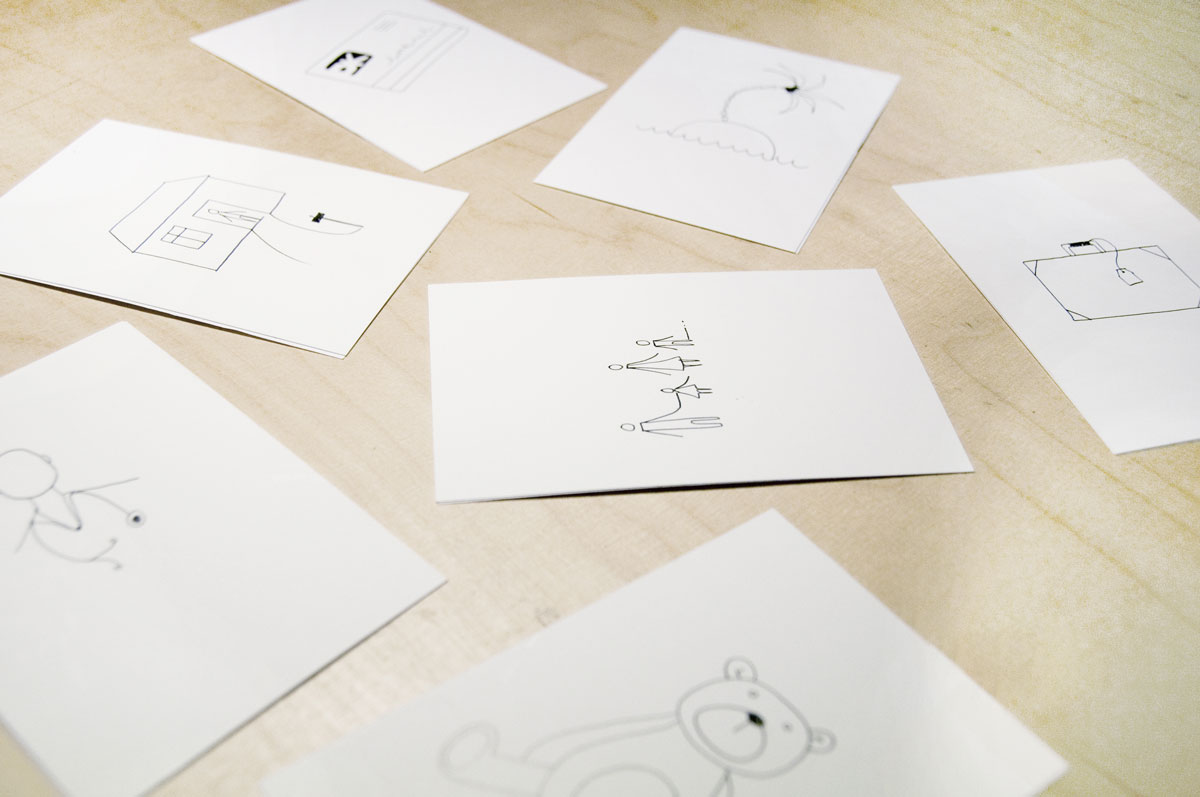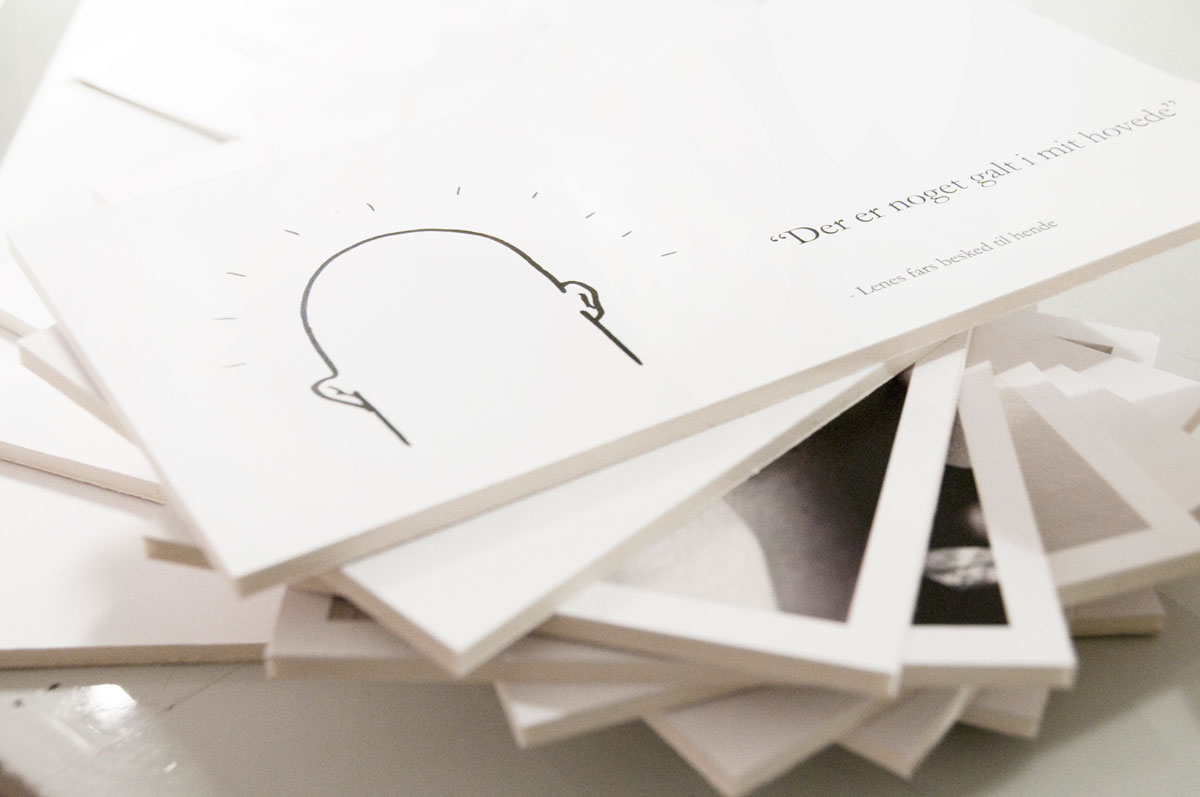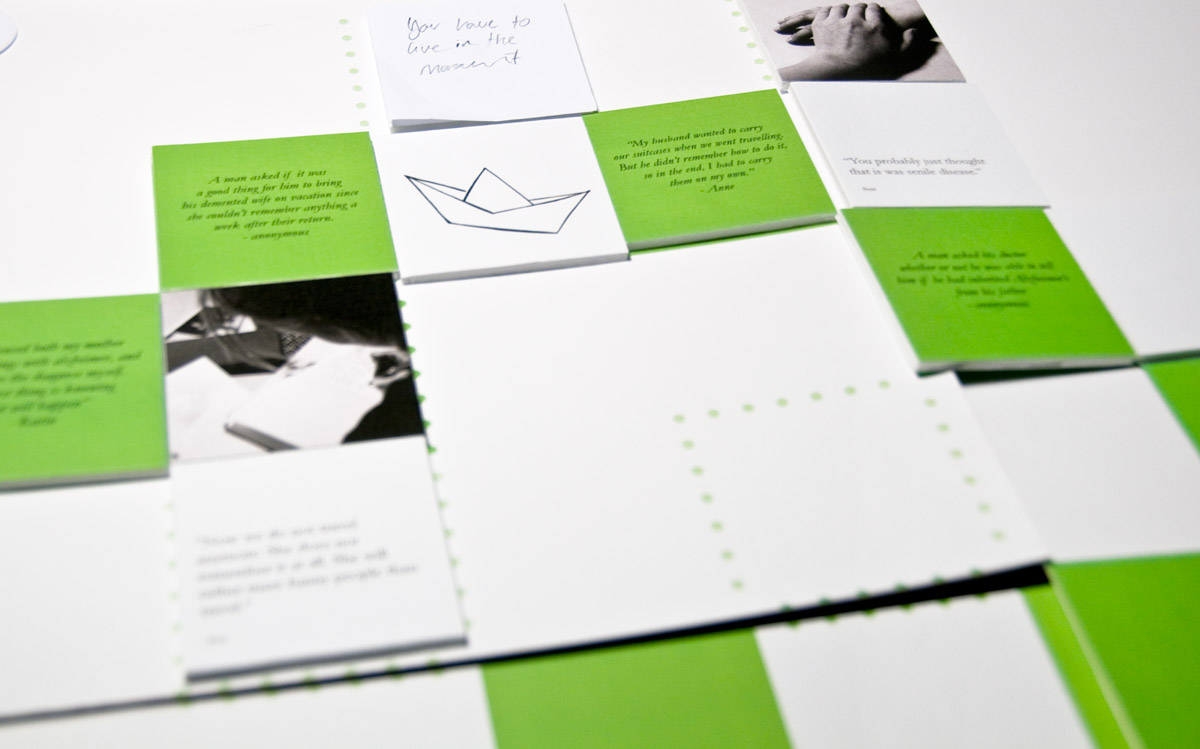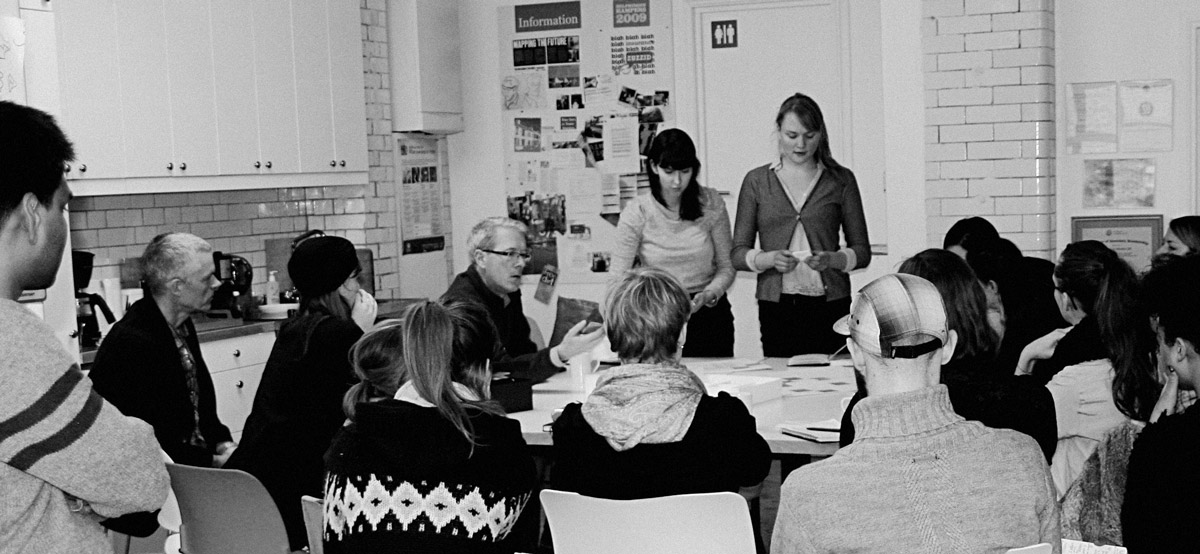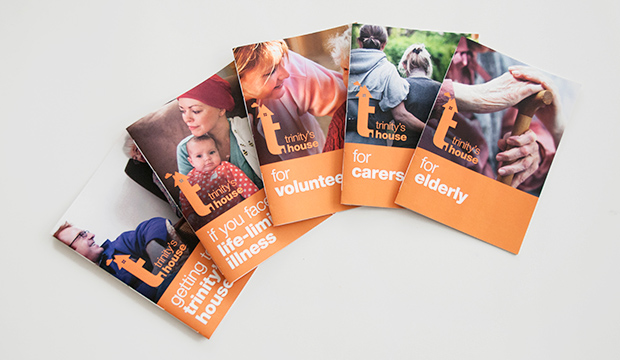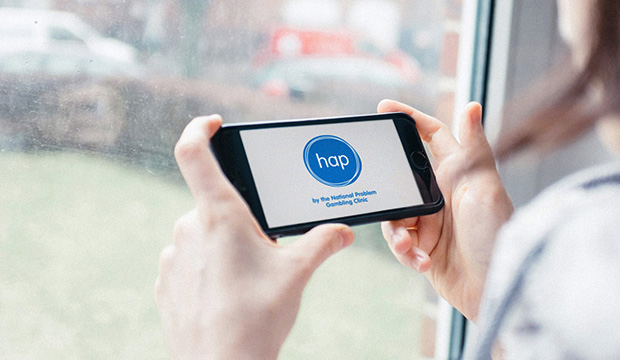The design
When playing the Dilemma Game, you create a personal reflection journey by asking a dilemma question and choosing an answer. The purpose of the game is neither winning nor losing; the challenge revolves around choices, options, and progress.
The outcome of the ten intense weeks was a box containing six different designs on how to ease the life with Alzheimer’s. The three tutors and ten students — myself included — who partook in the project, used the group as a bank of knowledge and as a room for discussion. After the project had come to an end, the university decided to publish a book on the project named: ‘Six Views in a Box: Dialogues on everyday life with Alzheimer’s’. Every student co‑wrote a chapter in the book.
For further reading, read the article that Mind Design (Danish Centre for Design Research) wrote about the project.
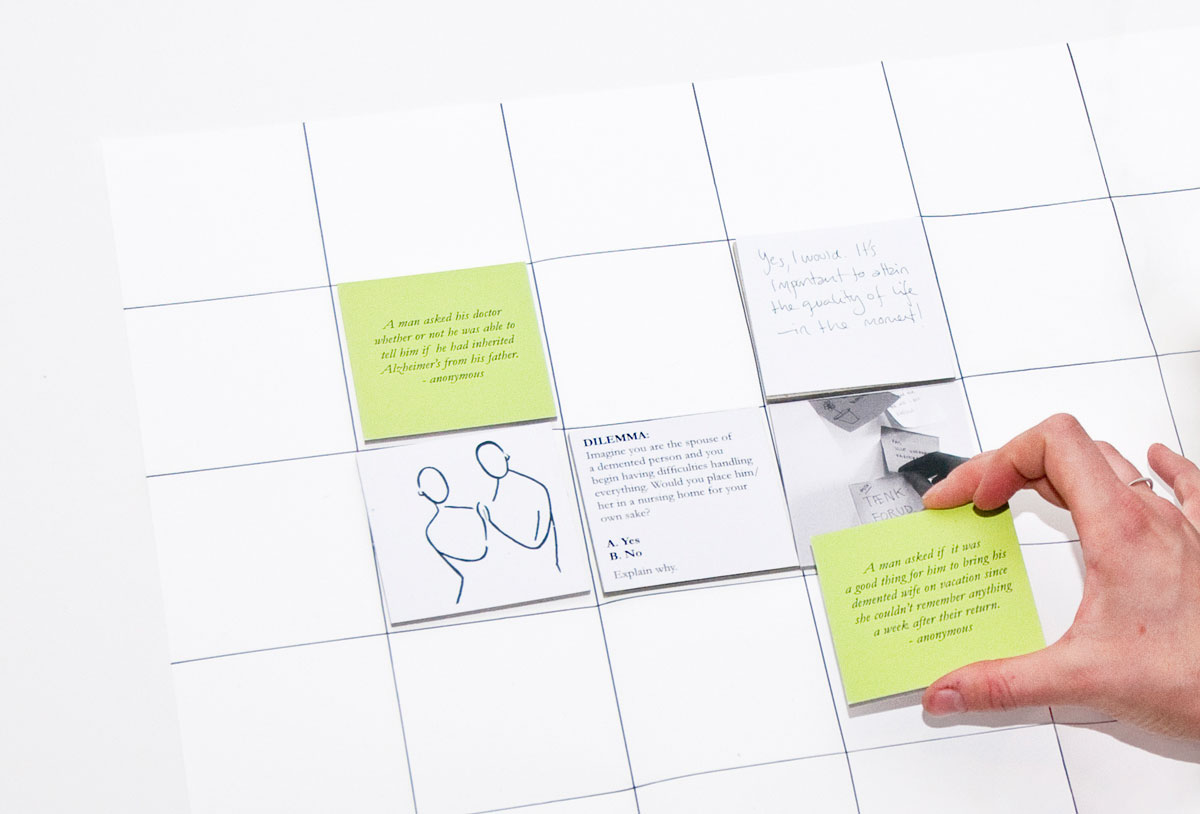
When playing the Dilemma Game, you create a personal reflection journey by asking a dilemma question and choosing an answer, placing them onto the board.
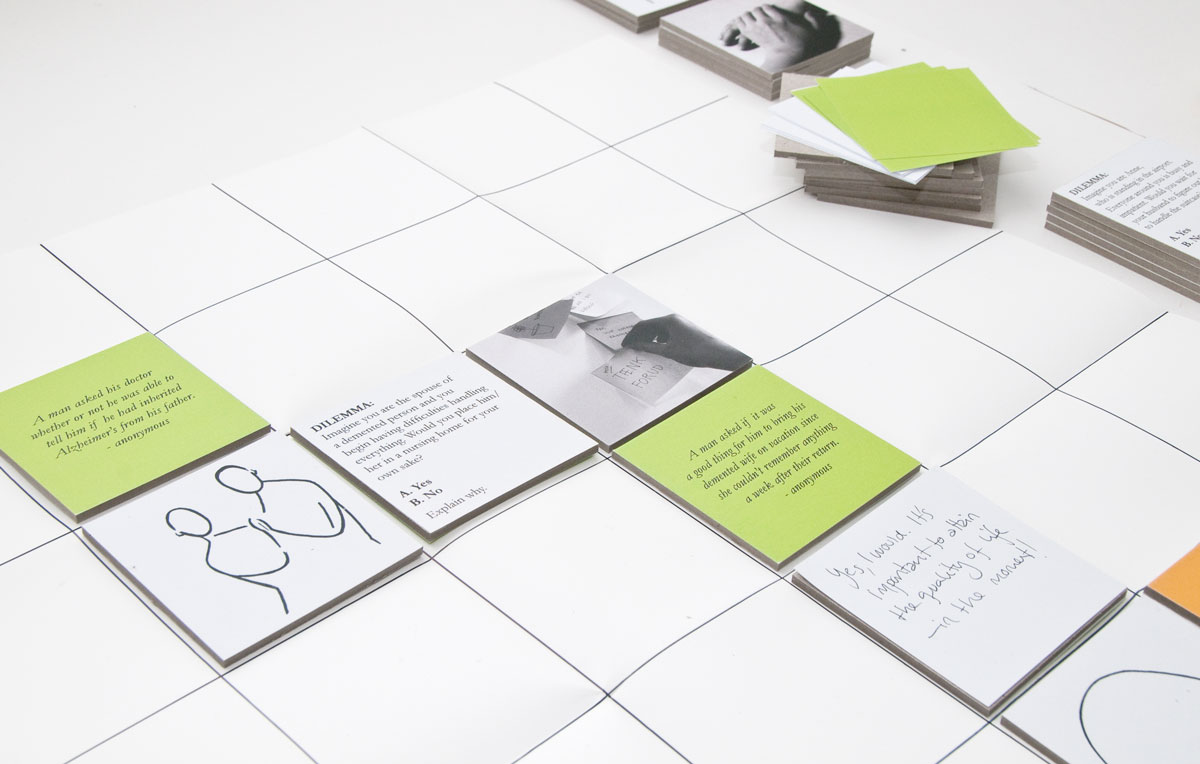
This dilemma path is a physical manifestation of the reflection and discussion that occur during the game playing.


The 'Six Views in a Box': Six different perspectives on improving life with Alzheimer's.

